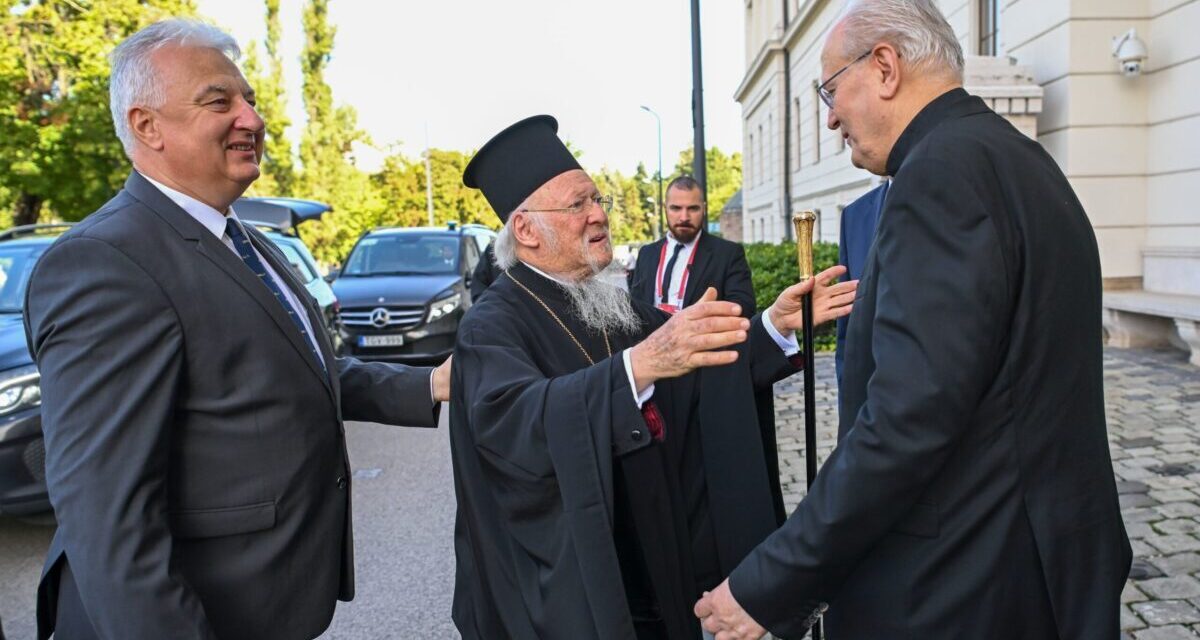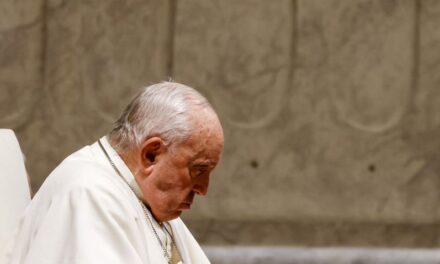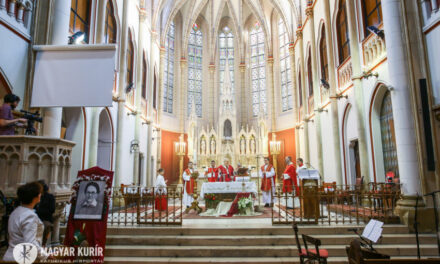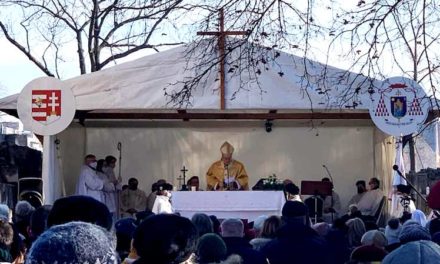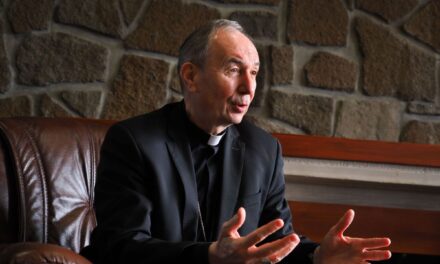The mission of the conservation of creation is to cultivate the world like a garden with the responsibility entrusted to man by God - Deputy Prime Minister Zsolt Semjén said on Monday at the conference entitled "Together for a Home". The keynote speaker of the conference, Ecumenical Patriarch Bartholomaios I of Constantinople, emphasized the importance of common thinking and action in the field of creation protection.
At the joint creation protection conference of the Pázmány Péter Catholic University and the National University of Public Service, Zsolt Semjén spoke about the fact that at the time of creation, God placed man in the world like a garden to cultivate, preserve and care for it.
There are two mistakes, two sins with the garden, or more precisely with the Creator of the garden: one is the hunger for profit of the unscrupulous industrial lobby, who would turn the world into an industrial park and raw material extraction; and the other is if they don't care about it and leave it to its fate - said the deputy prime minister.
Zsolt Semjén pointed out: man could not exist without nature, but at the same time, nature is "directed towards man, becomes conscious in him and through him".
Therefore, any ideology that would ban man from nature, which considers man as the enemy of nature, is a mistake.
The Deputy Prime Minister noted that the crucial difference between today's mainstream green ideology and Christian creation protection is that green ideology and politics refer to the order of nature in terms of animals, plants, and minerals, while propagating "unnatural things" in the case of humans and society - he said, citing gender ideology as an example. On the other hand, the protection of creation is aware that the order of nature reflects the order of creation, therefore it protects the order of nature in relation to man and society as well.
In his presentation, Bartholomew I drew attention to the fact that, just as we did not cause the loss of balance of our planet individually, we cannot restore the balance of the natural environment alone.
The common response to climate change includes listening to other Christian denominations, as well as studying and applying medicine and natural science, the patriarch said.
The head of the church also emphasized that the ecological crisis is neither a political challenge nor a scientific or technological problem. The way we perceive the world must be changed, otherwise we will continue to deal only with the symptoms, not the causes.
According to his view, the church is called to embody the phrase in the Lord's Prayer: "as in heaven, so on earth", that is, the global community of God's kingdom and human society.
At the same time, the "unfortunate reality" is that the church and, in a broader sense, religion is often reluctant to respond to the world's most pressing problems.
He said, therefore, in 2017, he created a special committee of 12 members, consisting of theologians, priests and lay people, to formulate the social teaching of the Orthodox Church. The finished document, For the Life of the World, helps to face the modern challenges of racism and poverty, human rights and bioethics, as well as technology and climate change. At the same time, its purpose is not to give prescriptive answers, but to start a dialogue about the role of the church in the world.
Cardinal Péter Erdő, archbishop of Esztergom-Budapest, highlighted in his greeting: environmental protection in the light of our faith means the protection of the created world. This, in turn, means that "our responsibility is valid before God, he has entrusted us with the created world, but not to exploit it unbridled, but to take care of it wisely".
He emphasized: the protection of creation is a task that exceeds the power of man, since we do not even know all the laws of the created world. We experience time and time again that a large effort to transform nature unexpectedly causes damage that the experts did not even expect, he noted.
In order to protect creation, we must therefore "stretch our human abilities and pray to God" at the same time, asking him to give light to researchers, innovators, and good ideas to the organizers of societies, so that they can help them to get to know the truth more and more deeply, and to apply what they have recognized in practice. they know in truth, justice, love and freedom - said Péter Erdő.
Cardinal Peter Turkson, the president of the Pontifical Academy of Sciences, emphasized in his presentation: the church, starting from the Holy Scriptures, confesses that God created man in his own image and likeness, from the dust of the earth and breathing into him his own soul. Body and soul together make up a person, and this makes him an integral being from the start.
He went on to say that when God placed Adam in the Garden of Eden, he designated man's task in the garden entrusted to him in two words: cultivate and guard it. In the original Hebrew, the word work also means 'to serve'. Man's purpose is therefore to serve God in creation and preserve the created world entrusted to him.
He also said that man is vulnerable and perfectable. He warned: transhumanism, which previously aimed to improve and cure people, has now started in another, dangerous direction: it tries to go beyond the limits of nature and to take man out of his original determination.
The participants of the conference signed a declaration on the importance of shared responsibility for the created world.
Speaking about the document, Tamás Fabiny, the president-bishop of the Hungarian Evangelical Church, emphasized that peace, justice and the protection of the created world are organically connected. There is no just war, only a just peace, and every war is accompanied by an ecological disaster that hits the poorest the hardest.
MTI

